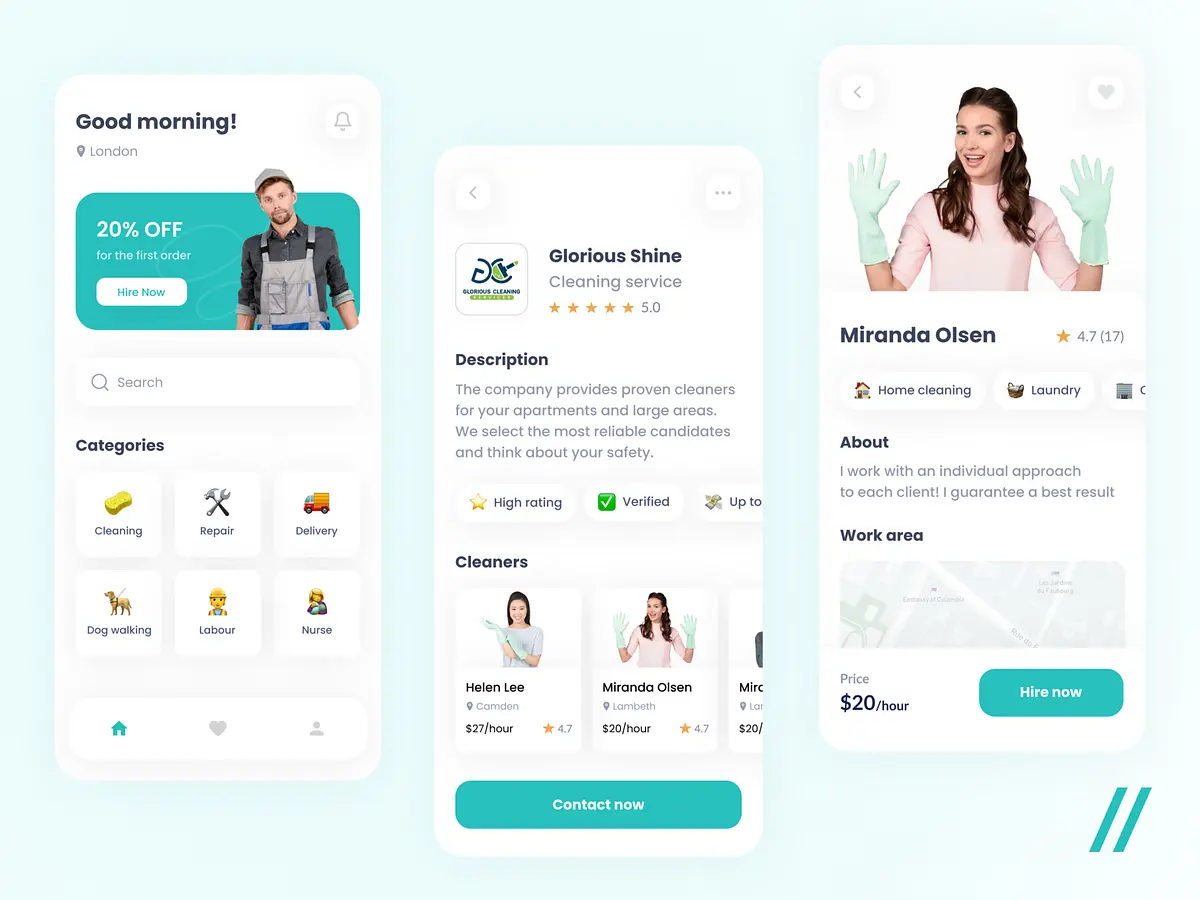AI for Enterprises: Smarter, Faster, and More Innovative Businesses


In the business world, enterprise artificial intelligence is utilized in numerous ways. You encounter AI in some shape or form every single day. From routine operations to complex decision-making, AI in the enterprise is revolutionizing business practices across all industries. As AI continues to spread, staying ahead in the market is essential.
The Future Role of AI in Business
The importance of AI for today’s businesses can be compared to how crucial electricity was at the start of the 20th century, changing industries like manufacturing and starting new ones like mass communications.
AI’s biggest role in business will likely be in automating and improving jobs that people do now.
AI’s work benefits are expected to surpass current automation tools. By analyzing huge amounts of data, AI performs tasks automatically and finds the best way to do them, changing how work gets done as needed.

AI in the Enterprises
AI at Work Today
AI is already making human jobs easier in many areas, such as helping doctors diagnose diseases or aiding call center staff in solving customer problems more effectively. In security, AI automatically deals with cyber threats and identifies which ones humans need to look at. Banks use AI to make loan processing faster and ensure they follow the rules.
The arrival of generative AI has greatly increased the kinds of jobs AI can do and improve. Businesses and people have quickly picked up this new tech, using tools like ChatGPT, Bard, and Copilot for searching, making art, writing essays, coding, and chatting.
Yet, the chance of AI taking over many jobs currently done by people is a big worry for workers, as discussed in later parts about the pros and cons of AI.
Check out more AI-related articles from TECHVIFY:
Searching “AI use cases” on Google brings up millions of results, showing how widely AI is used across different industries. From finance, one of the first to adopt AI, to healthcare, education, marketing, and retail, AI’s presence is broad. It’s found in every part of a business, from marketing and finance to HR, IT, and operations. It has various uses, such as customer service tools that generate human-like responses, deep learning for self-driving cars, and facial recognition for police work.
Here’s a look at how AI is being put to work in various fields and business areas.
The finance world uses AI to sift through huge amounts of data to improve everything from assessing risks and spotting fraud to making automated trading decisions. It also uses chatbots and virtual helpers, including robo-advisors, to give advice on investments, manage portfolios, and make customer service faster and more personal.
In manufacturing, robots designed to work with people, known as cobots, help on assembly lines and storage areas. AI is also used to predict when machines will need maintenance and to use machine learning to spot trends in what customers buy to help plan what to produce.
The farming industry uses AI to grow healthier crops, reduce manual work, and organize data better.

AI Applications
The legal field deals with many documents and uses AI to save time and better serve clients. Law firms use machine learning to dig through data and predict outcomes, computer vision to sort and find information in documents, and NLP to understand requests for information.
AI takes over the repetitive task of grading tests and evaluates students to customize learning materials to their needs, making learning more personal.
IT departments use machine learning to understand their systems and processes better. They use NLP to mine texts, find information, and sort documents. AI is also crucial in cybersecurity, helping to spot unusual behavior, reduce false alarms, and analyze threats based on behavior.
Marketing teams use AI for tasks like chatbots and virtual assistants to help customers, engines that make personalized recommendations by analyzing customer data, and tools that assess public sentiment towards a brand.
Have a Project Idea in Mind?
Get in touch with’s experts for a free consultation. We’ll help you decide on next steps, explain how the development process is organized, and provide you with a free project estimate.
Artificial intelligence has several shapes: machine learning, deep learning, predictive analytics, natural language processing (NLP), computer vision, and automation. Making the most of AI’s broad technologies means businesses must identify issues with people, processes, and tech.
AI is still developing, so the playbook for putting it into action is under construction. Experts in AI recommend a trial-and-error approach works better than going all in simultaneously. Start with an idea, test it, closely watch the outcomes, and adjust. Here are 10 steps to follow when introducing AI:

10 Steps to Implementing AI for Success in Your Enterprise
The AI for business growth is significant, with rapid changes in the field. Advances are largely driven by algorithm improvements, including new large language models for AI that are changing search engines.
New tools that make developing and deploying AI easier are also important. AI is moving into new areas like design, small devices, and multimodal applications, promising major benefits for various industries.
Here are some key trends in AI and machine learning:
The future of AI is closely linked with everything we do, moving from being a new idea to something as common as a hammer. AI tools are different because they can talk to and understand us, quickly becoming a part of our daily lives by answering questions and doing more of our work. This merging of human and artificial intelligence will likely continue, thanks to new technologies like brain-machine interfaces and robotics. These advances might lead to both humans and machines becoming smarter together. Yet, machines could become much smarter than humans, making humanity a part of the evolving intelligence story.
AI is reshaping how companies operate, from improving customer service with chatbots to making manufacturing smarter with predictive maintenance. As we move into this AI future, AI’s a huge chance to help people work better, make things more efficient, and open up new possibilities.
Putting AI to work correctly requires careful planning, understanding data, figuring out what your business needs, and trying things out to keep improving. For companies looking to use AI, it’s important to work with experts.
TECHVIFY, as an enterprise AI company, is dedicated to assisting your business in leveraging AI from inception to execution. We offer the best services from AI for your business. Don’t miss out on what AI can do for you. Contact TECHVIFY today to take your business to the next level with AI. Let’s make the future smarter and more innovative together.
TECHVIFY – Global AI & Software Solutions Company
For MVPs and Market Leaders: TECHVIFY prioritizes results, not just deliverables. Reduce time to market & see ROI early with high-performing Teams & Software Solutions.


Table of ContentsThe Power of AI in the Enterprise AI Applications Across Different Business Functions Financial Services Manufacturing Agriculture Law Education IT Service Management and Cybersecurity Marketing 10 Steps to Implementing AI for Success in Your Enterprise The Future of AI in the Enterprise Conclusion Technological advancements are paving new paths for companies across different sectors, and the logistics industry is no exception. According to a survey by Gartner, 87% of supply chain professionals plan to invest in enhancing the resilience of their platforms. Logistics encompasses a broad and complex array of processes that demand the utmost precision and continuous optimization. Companies can automate and streamline these processes through software product…
26 July, 2024

Table of ContentsThe Power of AI in the Enterprise AI Applications Across Different Business Functions Financial Services Manufacturing Agriculture Law Education IT Service Management and Cybersecurity Marketing 10 Steps to Implementing AI for Success in Your Enterprise The Future of AI in the Enterprise Conclusion The technology sector is advancing at an unprecedented pace, and the HR landscape is evolving right alongside it. To attract top talent, HR professionals and organizations need to stay ahead of emerging technology hiring trends. This year, we are witnessing significant shifts in hiring practices that will redefine our understanding of the future workforce. According to a Microsoft study, the number of technology jobs worldwide is…
25 July, 2024

Table of ContentsThe Power of AI in the Enterprise AI Applications Across Different Business Functions Financial Services Manufacturing Agriculture Law Education IT Service Management and Cybersecurity Marketing 10 Steps to Implementing AI for Success in Your Enterprise The Future of AI in the Enterprise Conclusion Customized software plays a major role in managing various tasks within the telecom industry. It is essential for allocating numbers to subscribers and managing networks through optimized and AI-enabled routing protocols. Additionally, it aids in detecting fraud with intelligent telecom software development solutions and maintaining detailed subscriber profiles, including comprehensive call recording reports. I. A Quick Look into the Telecommunication Industry The telecommunications industry enables the…
24 July, 2024


Thank you for your interest in TECHVIFY Software.
Speed-up your projects with high skilled software engineers and developers.
By clicking the Submit button, I confirm that I have read and agree to our Privacy Policy